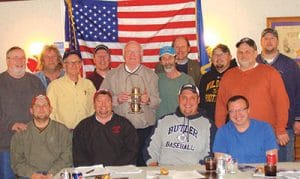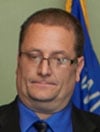WASHINGTON, D.C. – The U.S. Department of Labor’s Occupational Safety and Health Administration (OSHA) has posted new frequently asked questions (FAQs) on the agency’s standard for respirable crystalline silica in general industry.
OSHA developed the FAQs in consultation with industry and union stakeholders to provide guidance to employers and employees on the standard’s requirements, such as exposure assessments, regulated areas, methods of compliance and communicating silica hazards to employees. The questions and answers are organized by topic and include an introductory paragraph that provides background information about the regulatory requirements.
Visit OSHA’s silica standard for general industry webpage for more information and resources on complying with the standard.
Silica dust, when inhaled, affects the lungs and can be a contributor to the development of lung cancer, silicosis, chronic obstructive pulmonary disease and kidney disease in workers. It is of potential concern to rail workers as the dust created from the passage of trains over track ballast containing silica could become airborne and be inhaled.
Under the Occupational Safety and Health Act of 1970, employers are responsible for providing safe and healthful workplaces for their employees. OSHA’s role is to help ensure these conditions for America’s working men and women by setting and enforcing standards, and providing training, education and assistance. For more information, visit www.osha.gov.
Author: bnagy
A bill called the Transportation Funding Fairness Act (TFFA), introduced by first-term U.S. Rep. Tom Malinowski (D) of New Jersey, would give more latitude for states to use federal funds to help pay for projects, such as the Gateway Tunnel between New York and New Jersey.
“The TFFA will clear one of the obstacles the administration has placed in the path of building Gateway, and other similar projects around the country,” Malinowski said in a press release. “Funding for infrastructure is one issue on which I think the Congress can make progress this year, and this bill can be an important part of that effort.”
The bill (H.R.731), introduced Jan. 23, had seven co-sponsors as of Jan. 28 and the endorsement of SMART Transportation Division and the Amalgamated Transit Union.
“SMART Transportation Division supports The Transportation Funding Fairness Act,” New Jersey State Legislative Director Ron Sabol said in the release. “It’s about time we get funding fairness for our much needed infrastructure projects.”
Read the full release from Malinowski’s office.
Willis Croonquist, of Local 1177 (Willmar, Minn.), a former United Transportation Union Minnesota state legislative director and alternate national legislative director in the 1980s and ’90s, died Jan. 24. He was 81.
Croonquist had been a member of the union since 1955, and served as a guiding light to many on the legislative side of the union, including current National Legislative Director John Risch.
“Over the years, Willis was much more than a union brother,” said John Risch, national legislative director for SMART TD. “He was my mentor and a dear friend. He was well-liked and was well respected, which is what made him a very effective Minnesota legislative director and UTU alternate national legislative director.”
Risch continued, “Willis was always fun to be with. He knew how to have a good time and when I was with him I had a good time, too. He will be missed … I miss him already.”
Past UTU President Thomas DuBose offered his personal condolences in a message to Croonquist’s family:
“Please know that the death of my longtime friend Willis was received with shock and much sadness,” DuBose wrote. “Our years of friendship will always be an important entry in my book of memories.
“Without question, the American labor movement lost a leading trade unionist and political activist in every sense of the word, with his passing.”
Croonquist’s career was steeped in politics. Not only did he work on the UTU’s legislative side, but he was also a Minnesota Democratic Farmer Labor Party national delegate and counted U.S. Vice Presidents Hubert Humphrey and Walter Mondale among his friends.
In an article published in September 2000 in the UTU News, Croonquist talked about how Humphrey inspired him politically.
“I was a young brakeman when I first heard Humphrey speak,” he said, “and he lit a fire under me.”
Croonquist began his career as a fireman on the Great Northern in 1955, and joined the Brotherhood of Locomotive Firemen & Enginemen. Just short of the requisite 10 years of seniority to become an engineer, a movement to eliminate firemen resulted in Croonquist becoming a brakeman and a member of the Order of Railway Conductors and Brakemen.
Elected local legislative representative in 1968, he found his way onto the state legislative board, and in 1984 became state legislative director, a post he held for nine years. In 1991, he was elected UTU assistant national legislative director but resigned in 1993 when the railroad offered a buyout and the Designated Legal Counsel law firm Hunegs, Stone, LeNeave, Kvas & Thornton, sought his expertise as an investigator.
After leaving the railroad, Croonquist still maintained his contributions to the union’s political action committee. In 2011, he appeared with family members in an ad promoting UTUIA products that appeared in the UTU News in 2011. He also was honored by Local 1177 for his then-55 years of continuous membership with a brass lantern presented at a meeting of his home local in December 2010.
“He was known by many in the government affairs, philanthropic and religious community and loved by all who spent time with him,” said Minnesota State Legislative Director Philip Qualy. “For our 1,200 members and many retirees across Minnesota, I offer my sincere condolences to the Croonquist family.”
Carl Cochran, a former Florida state legislative director and the national coordinator of the SMART TD Alumni Association, worked with Croonquist and offered condolences as well.
“What is sad is that not all our sisters and brothers were able to get to know Brother Croonquist — a great union person and family man,” Cochran said.
Visitation is scheduled 3 to 5 p.m. Sunday, Feb. 10, with services 11 a.m., Monday, Feb. 11, at St. Barnabas Lutheran Church, 15600 Old Rockford Road, Plymouth, Minn.
With the partial federal government shutdown in its 35th day on Jan. 25, many small- to mid-sized transit agencies are reporting a financial pinch, Politico.com reports.
Agencies in North Carolina, Missouri, Arizona and California all say that cuts in service are on the table if the shutdown persists.
And at least one transit provider, Cape Fear Public Transportation Agency in Wilmington, N.C., is considering a plan to not operate in February because of a lack of funds. Its executive director reports that Federal Transit Administration (FTA) reimbursements for the first four months of the fiscal year have not been processed with each reimbursement representing a quarter of its monthly operating budget.
But even if the shutdown ended soon, it would not guarantee that the payments would arrive to fund operations, executive director Albert Eby told Politico.com.
Read the full story at politico.com.
A number of candidates to transportation-related oversight posts in the federal government whose nominations were returned to President Donald Trump in early January have been renominated to those posts.
Thelma Drake has been renominated to be the administrator of the DOT’s Federal Transit Administration (FTA) and Lynn Westmoreland, Joseph Gruters and Rick Dearborn are again under consideration for positions on the Amtrak board of directors.
SMART Transportation Division opposes the nomination of Westmoreland, whose voting record as a U.S. representative shows he has a long history of voting against Amtrak funding.
“As a longtime member of the House Transportation and Infrastructure Subcommittee on Railroads, Pipelines, and Hazardous Materials, Westmoreland has a hostile voting record against Amtrak, which includes efforts to eliminate federal funding for Amtrak entirely. In addition, Westmoreland has been an original cosponsor of the ‘National Right-to-Work Act’ on multiple occasions, which would significantly weaken our ability to collectively bargain. For these reasons, we oppose his nomination as it would undermine the core mission of Amtrak and its employees,” we reported when his nomination was initially introduced in October 2017.
Also renominated by the president are Michelle Schultz to the Surface Transportation Board (STB), and Michael Graham and Jennifer Homendy to the National Transportation Safety Board (NTSB). Homendy is currently serving a term on the board that runs out at the end of 2019.
Two nominations also were made to highway oversight positions — Heidi King to administer the National Highway Safety Administration (NHTSA) and Nicole Nason to administer the Federal Highway Administration (FHA).
These nominations will be considered by U.S. Senate subcommittees before potential advancement for consideration by the full Senate.
Two assistant state legislative directors were elevated to lead their respective states’ legislative boards after a pair of retirements at the end of 2018.
In Oregon, Glenn Carey, a member of Local 1841 and the state’s assistant SLD since March 2016, took over with the Jan. 1 retirement of Randy Russ.
Russ, of Local 1574, joined the union in 1999 and served just short of seven years as Oregon’s SLD.
“When Randy talked, people listened,” Carey said. “That’s Randy…not a lot of banter, but when he talked, we hung on every word. We listened. Most staunch union man I’d ever seen and (he) was a big brother to me.
“I am hoping to do a good job for SMART TD and keep the level of professionalism just like Randy did.”
Carey says two-person crew legislation similar to what was passed in California will be a priority in Oregon.
“We will get it,” he said. “The timing is right.”
In Wisconsin, William “Andy” Hauck succeeds Craig Peachy, who also retired effective Jan. 1. Hauck began as assistant SLD in April 2016 and is a member of Local 583.
Hauck said he’s taking over the state legislative board at a good time.
“We have a new governor in Wisconsin — we’re ‘Scott free’,” he quipped, referring to the anti-union former Gov. Scott Walker, who enacted right-to-work-for-less and other anti-union initiatives during his terms.
Wisconsin is among four states that have passed state two-person crew legislation, so Hauck’s focus will be on bringing legislation forward on issues including taxi-cab legislation covering rail worker transportation; rail inspection reforms through the state Commissioner of Railroads Office; legislation covering safety lighting in rail yards and ensuring that full Positive Train Control (PTC) interface access is available to conductors.
“The regulation states that ALL crew members will be trained and have the capability to interact with the safety overlay system of PTC,” Hauck said.
Hauck’s predecessor, Peachy, hired out with the Soo Line railroad in 1974 and had his rail career disrupted a number of times because of layoffs. He returned for good in 1990 with the Wisconsin Central Ltd., a subsidiary of Canadian National that was successfully organized by the United Transportation Union in 1997.
Peachy, of Local 583 (Fond du Lac, Wis.), got involved as a local legislative representative, eventually being elected state legislative director in 2012 and then re-elected in 2016.
“It has been an honor and privilege to have leaders like Brothers John Risch and James Stem, who were always there to guide and direct me to be the best state legislative director that I could be,” Peachy said in a letter announcing his retirement. “The SMART TD Legislative Department is second to none due to our past and present elected leadership.”
SMART TD wishes Peachy and Russ the best in their retirements and Carey and Hauck success in their work to serve our brothers and sisters.
William Arthur McManus (Maxie), 74, of Dumont, N.J., died Jan. 5, 2019, at the James J. VA Medical Center in the Bronx, N.Y.
Bill, a member of SMART Transportation Division Local 1447, joined the union in November 1977 and was a railroad conductor with CSX and Conrail for more than 30 years, retiring as Local 1447’s trustee in 2011. He proudly served his country in the U.S. Army during the Vietnam era, and was a member of the American Legion Post 21, Cresskill, the Disabled American Veterans and Elks Lodge 1477.
He is survived by his wife of 45 years, Marie (Crutchfield); his children; his grandchildren; and many other relatives.
Visitation will be 4 to 9 p.m. Friday, Jan. 11 at the Frech-McKnight Funeral Home, 161 Washington Ave., Dumont. A funeral Mass be 10 a.m., at St. Joseph R.C. Church, Oradell, with interment to follow in George Washington Memorial Park, Paramus.
As an expression of sympathy or in lieu of flowers, donations may be made in William’s memory to Vietnam Veterans of America, 8719 Colesville Road, Suite 100, Silver Spring, MD 20910.
Read the full obituary.




